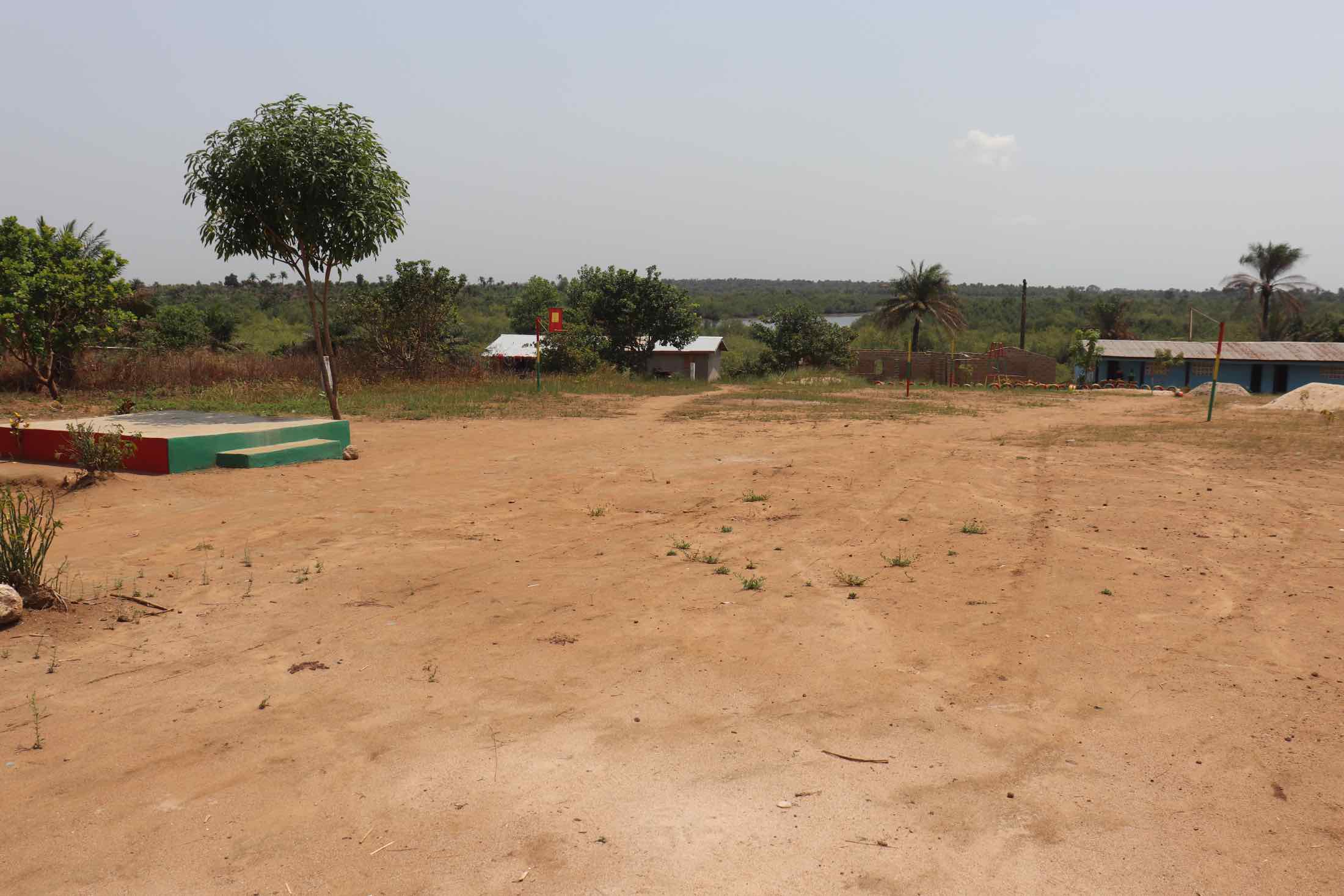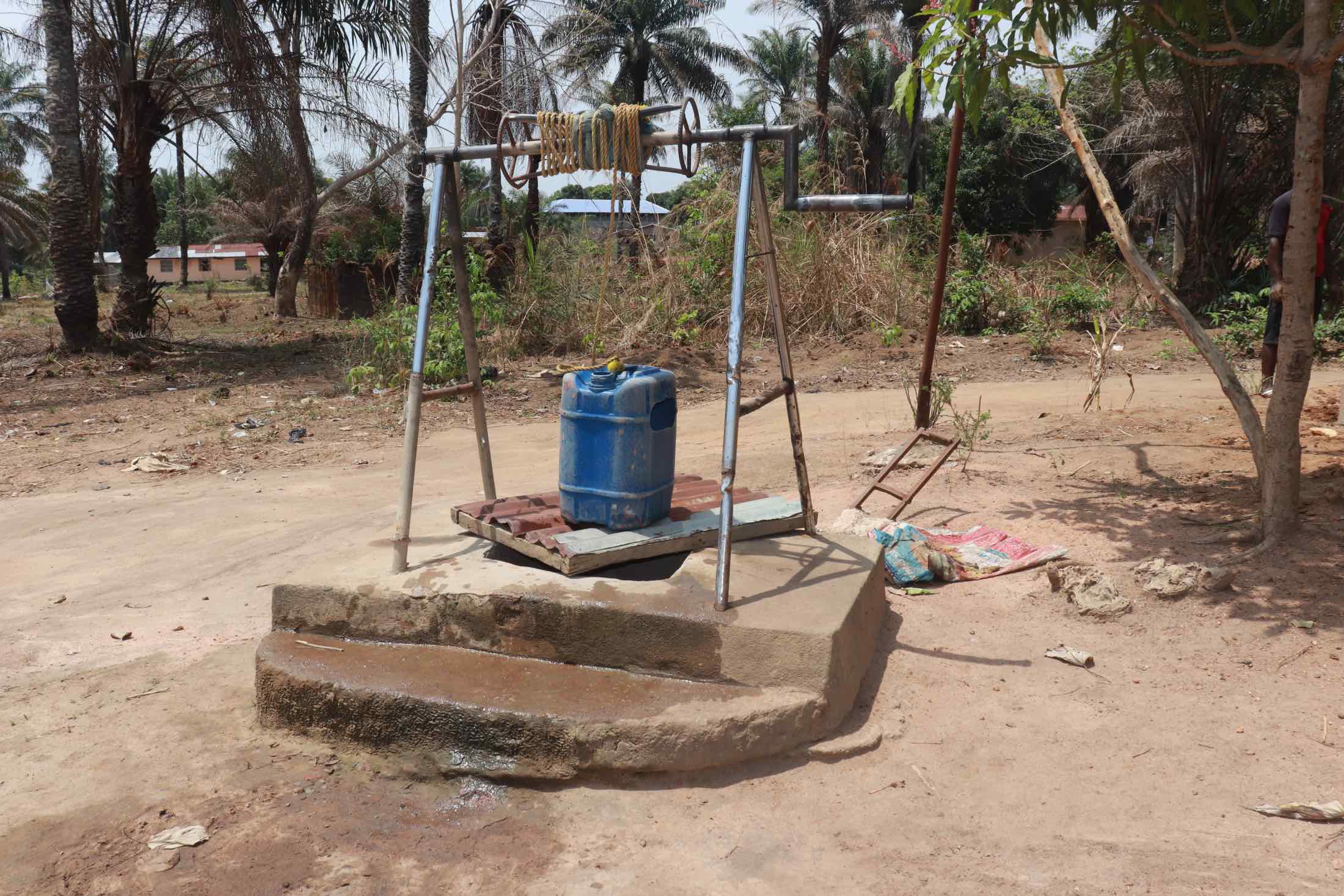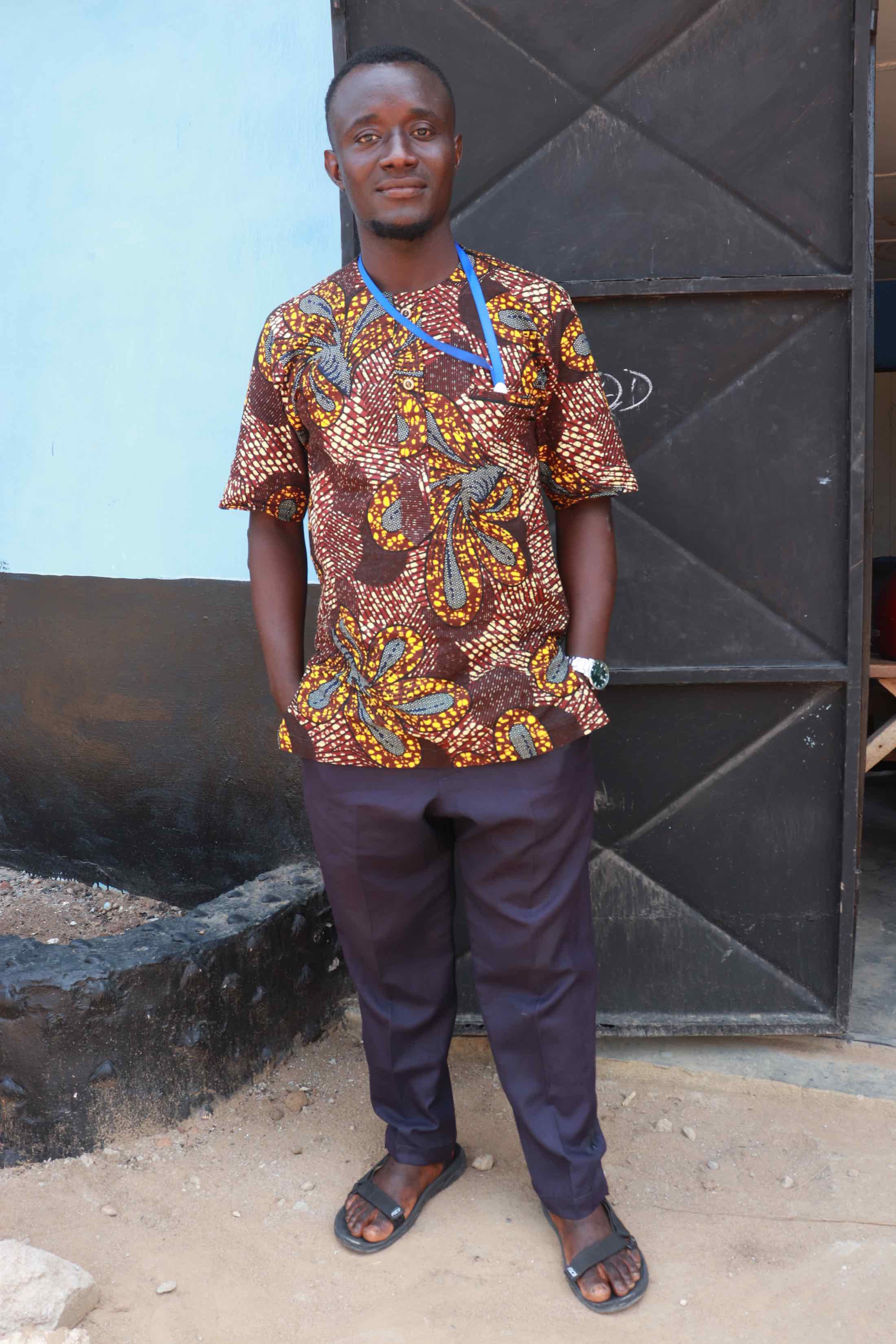It isn't easy for the 142 students and staff of Gbom Tardi International Academy to get pure and reliable water to drink. In this community, 57% of households rely on swamps as the main water source for drinking and cooking purposes.

"I always find it extremely difficult to stay long in school without sufficient and pure water to drink, wash my hands, and use in the toilet," said 16-year-old student Zainab Sillah. "It is not easy to get a single bucket of water from a far distance and attend class thereafter. The time taken to fetch water reduced my full attention from classwork."
Lungi, Gbom Tardi International Academy has been running since 2016 without water. The school has no fixed water source; they fetch water from any well or swamp available. Students sent to acquire water roam the community, looking for access to water for school use. Sometimes the school is denied access to water from the private water sources in the community.
"The water from some of these sources is not pure for drinking," Zainab explained. "The environments are not hygienic for us to fetch drinking water. This might be the reason why I suffer from stomachache and diarrhea."

Though there is a well close to the school ground, permission to access the water from the well is sometimes a challenge. This well had been the most readily accessible source for the school, but the access is sometimes restricted.
The other alternate well for the school is an unprotected dug well without a hand pump. Water from this well is not pure for drinking but used for sanitary purposes. The well is not properly taken care of, but the demand for water from this source is high.
And the last option for students of Rogbom Tardi International Academy? A swamp.
"It is scary to go through a bushy footpath to the swamp, especially when the sun is hot," said one of our field officers. "People are exposed to poisonous snakes and other wild animals when accessing the swamp to fetch water. Most of the holes in the swamp area are isolated. Considering the long distance, it is difficult to walk from the school ground to the swamp to fetch water."
A teacher at the school, Isaac Bendu (32), is also a resident of the Rogbom Tardi community. "Without water on the school grounds, I find it difficult to use the school toilet facility and even wash my hands after teaching," Isaac said. "I waste much time getting water to bathe before coming to school to teach. This is why I am late for school sometimes."

Although health and hygiene are the most important reasons for a new well to be installed on school grounds, the lack of clean water also interferes with students' studies. "Subjects like home economics require a practical lesson," Isaac explained. "Because of the water shortage, I always found that challenging to conduct."
What we can do:
New Well
We will be drilling in a centrally located area, which will relieve many people of the long journey to fetch water.
Our team will drive over the LS200 mud rotary drill rig and set up camp for a couple of nights. Once the well is drilled to a sufficient water column, it will be cased, developed, and tested. If these tests are positive, our mechanics will install a new India Mark II pump.
The caretaker of the proposed well is a staff member of the school and a resident of the community.
This community has been pushed to open contaminated well for their water. By drilling this borehole, Rogbom Tardi International High School will provide plenty of accessible clean drinking water.
Training
There will be hygiene and sanitation training sessions offered for three days in a row.
Community members will learn how to make a hands-free handwashing station called the "tippy tap." We will use these tippy taps for handwashing demonstrations and teach about other tools like dish racks and the importance of properly penning in animals. We will highlight the need to keep restrooms clean, among many other topics.
This training will also strengthen a water user committee that will manage and maintain this new well. They will enforce proper behavior and report to us whenever they need our help in solving a serious problem, like a pump breakdown.

 Borehole Well and Hand Pump
Borehole Well and Hand Pump
 Rehabilitation Project
Rehabilitation Project














